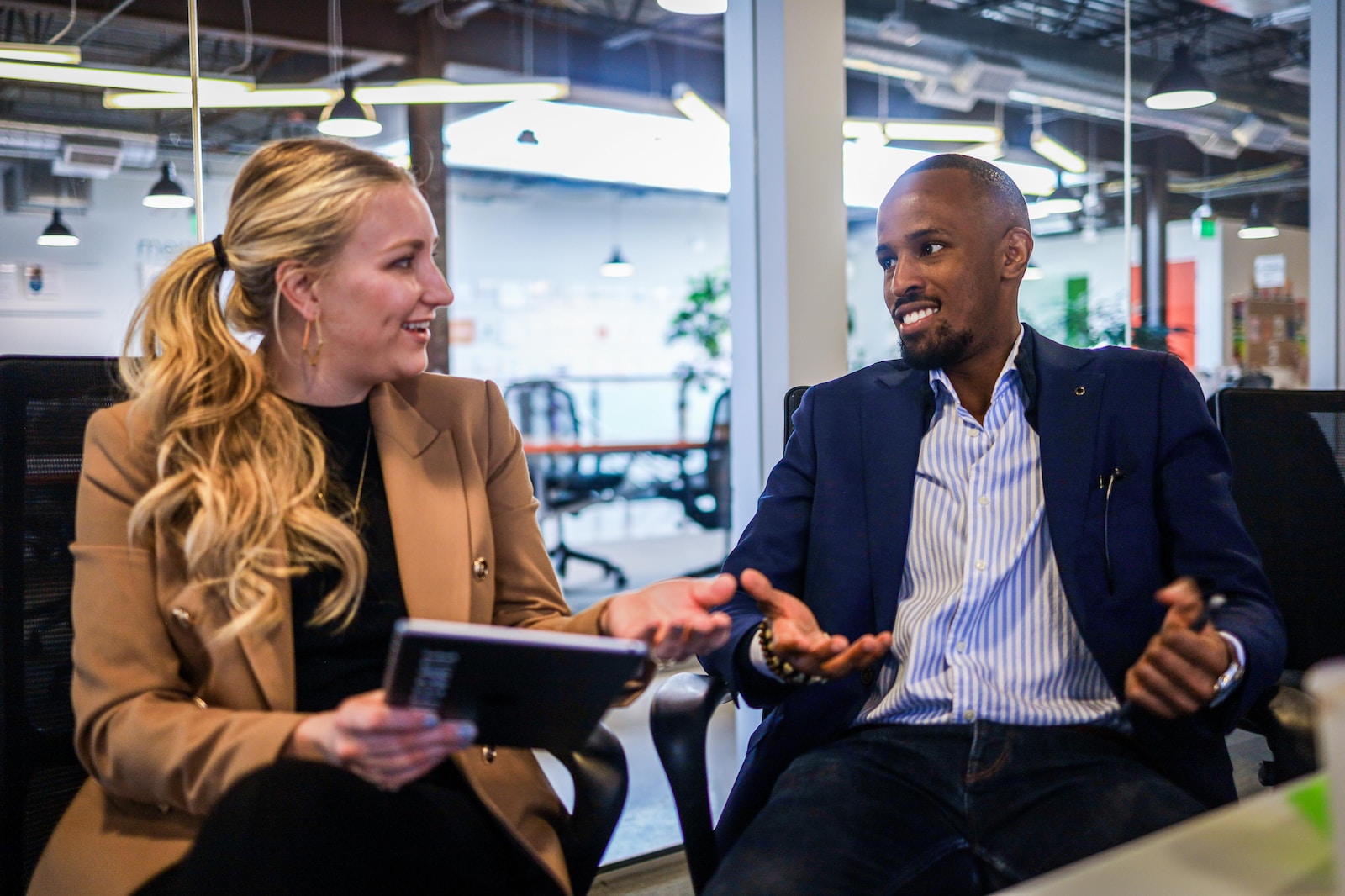Introduction: The Importance of Interview Skills for Millennials in Today’s Job Market
In today’s competitive job market, it is more important than ever for millennials to stand out from the crowd when applying for jobs. With so many qualified candidates vying for the same positions, having strong interview skills can make all the difference in landing a dream job. Employers are not only looking for candidates with the right qualifications and experience, but also individuals who can effectively communicate their skills and fit into the company culture. This is where interview skills come into play.
Researching the Company and Preparing for the Interview
One of the most important aspects of preparing for an interview is researching the company and the job position. This shows the employer that you are genuinely interested in the company and have taken the time to understand their values, goals, and mission. It also allows you to tailor your answers to align with what the company is looking for in a candidate.
To research the company, start by visiting their website and reading about their history, products or services, and any recent news or updates. Look for information about their company culture and values, as well as any specific projects or initiatives they are currently working on. You can also search for articles or interviews with current or former employees to get a better understanding of what it’s like to work at the company.
Once you have gathered this information, you can then prepare for the interview by thinking about how your skills and experience align with what the company is looking for. Practice answering common interview questions and think of specific examples from your past experiences that demonstrate your abilities and accomplishments. This will help you feel more confident and prepared during the actual interview.
Dressing for Success: Appropriate Attire for Job Interviews
While it may seem superficial, dressing appropriately for a job interview can have a significant impact on how you are perceived by potential employers. Your appearance is often the first impression you make, and it can influence how you are perceived as a candidate. Dressing professionally shows that you take the interview seriously and are committed to presenting yourself in the best possible light.
When choosing attire for a job interview, it is important to consider the company culture and dress code. Research the company beforehand to get a sense of what is considered appropriate attire. If the company has a more formal dress code, opt for a suit or professional attire. If the company has a more casual dress code, you can still dress professionally, but you may be able to wear something slightly more relaxed.
Regardless of the dress code, it is always better to be slightly overdressed than underdressed. It is better to err on the side of caution and show up looking polished and put together. Avoid wearing anything too revealing or distracting, and make sure your clothes are clean, pressed, and in good condition.
Body Language and Nonverbal Communication: Tips for Making a Positive Impression
In addition to what you say during an interview, your body language and nonverbal communication can also have a significant impact on how you are perceived by potential employers. Your body language can convey confidence, professionalism, and engagement, or it can convey nervousness, disinterest, and lack of confidence.
To make a positive impression through body language, start by maintaining good posture. Sit up straight and avoid slouching or leaning back in your chair. Make eye contact with the interviewer to show that you are engaged and interested in what they are saying. Avoid crossing your arms or fidgeting, as this can make you appear closed off or nervous.
Another important aspect of nonverbal communication is your handshake. A firm handshake conveys confidence and professionalism, while a weak or limp handshake can give the impression that you lack confidence or are not enthusiastic about the opportunity. Practice your handshake beforehand to ensure that it is firm but not overly aggressive.
Answering Common Interview Questions: How to Showcase Your Skills and Experience
During a job interview, you can expect to be asked a variety of common interview questions. These questions are designed to assess your skills, experience, and fit for the company. It is important to prepare for these questions in advance so that you can effectively showcase your abilities and accomplishments.
One common interview question is “Tell me about yourself.” This question gives you the opportunity to provide a brief overview of your background, skills, and experience. It is important to keep your answer concise and focused on relevant information. Highlight your most relevant experience and accomplishments, and explain how they make you a strong fit for the position.
Another common interview question is “Why are you interested in this position?” This question allows you to demonstrate your knowledge of the company and your genuine interest in the role. Be specific about what attracts you to the position and how it aligns with your career goals. Avoid generic answers and instead focus on what makes this particular opportunity unique and exciting for you.
Overcoming Nervousness and Building Confidence during the Interview Process
Nervousness is a common feeling during job interviews, but it can also hinder your ability to effectively communicate your skills and experience. It is important to find ways to overcome nervousness and build confidence during the interview process.
One way to overcome nervousness is through preparation. The more prepared you are for the interview, the more confident you will feel. Take the time to research the company, practice answering common interview questions, and think of specific examples from your past experiences that demonstrate your abilities and accomplishments. This will help you feel more confident in your abilities and preparedness.
Another way to build confidence is through positive self-talk. Remind yourself of your strengths, accomplishments, and qualifications for the position. Focus on what makes you a strong candidate and why you are deserving of the opportunity. Visualize yourself succeeding in the interview and landing the job. This positive mindset can help boost your confidence and reduce nervousness.
Following Up After the Interview: The Importance of Thank You Notes and Professionalism
Following up after an interview is an important step in the job search process. It shows the employer that you are genuinely interested in the position and appreciate the opportunity to interview. Sending a thank you note is a simple yet effective way to demonstrate professionalism and gratitude.
When writing a thank you note, be sure to personalize it to the specific interviewer and mention something specific from the interview that stood out to you. Express your appreciation for their time and consideration, and reiterate your interest in the position. Keep the note concise and professional, and send it within 24-48 hours of the interview.
In addition to sending a thank you note, it is also important to maintain professionalism throughout the entire interview process. This includes being punctual, dressing appropriately, and being respectful and attentive during the interview. Remember to turn off your cell phone before entering the interview room, and avoid any distractions or interruptions during the interview.
Handling Difficult Interview Scenarios: Dealing with Tough Questions and Tricky Situations
During a job interview, you may encounter difficult scenarios such as tough questions or tricky situations. It is important to be prepared for these scenarios and know how to handle them effectively.
One common difficult scenario is being asked a tough question that you are unsure how to answer. In this situation, it is important to remain calm and composed. Take a moment to gather your thoughts before responding, and be honest if you don’t know the answer. Instead of trying to bluff your way through it, explain how you would go about finding the answer or solving the problem.
Another tricky situation is being asked about a negative experience or weakness. It is important to approach these questions with honesty and self-awareness. Instead of trying to avoid the question or provide a generic answer, be honest about the situation and explain what you learned from it or how you have worked to improve. This shows that you are self-reflective and willing to learn from your mistakes.
How to Negotiate Salary and Benefits: Tips for Millennials Entering the Workforce
Negotiating salary and benefits is an important part of the job search process, especially for millennials entering the workforce. It is important to know your worth and advocate for fair compensation and benefits.
Before entering into salary negotiations, it is important to research the average salary range for similar positions in your industry and location. This will give you a baseline for what is considered fair compensation. Consider your skills, experience, and qualifications, as well as the cost of living in your area, when determining your desired salary range.
When negotiating salary, be confident and assertive in expressing your value and why you deserve a higher salary. Focus on your skills, experience, and accomplishments that make you a strong fit for the position. Be prepared to provide evidence or examples of your achievements that justify your desired salary.
Conclusion: Mastering Interview Skills to Land Your Dream Job in the Competitive Job Market
In conclusion, mastering interview skills is crucial for millennials looking to land their dream job in today’s competitive job market. With so many qualified candidates vying for the same positions, having strong interview skills can make all the difference in standing out from the crowd.
By researching the company and preparing for the interview, dressing appropriately, using positive body language and nonverbal communication, answering common interview questions effectively, overcoming nervousness and building confidence, following up after the interview with thank you notes and professionalism, handling difficult interview scenarios with grace, negotiating salary and benefits assertively, millennials can increase their chances of landing their dream job.
It is important for millennials entering the workforce to invest time and effort into developing their interview skills. By doing so, they can position themselves as strong candidates and increase their chances of success in the competitive job market.





